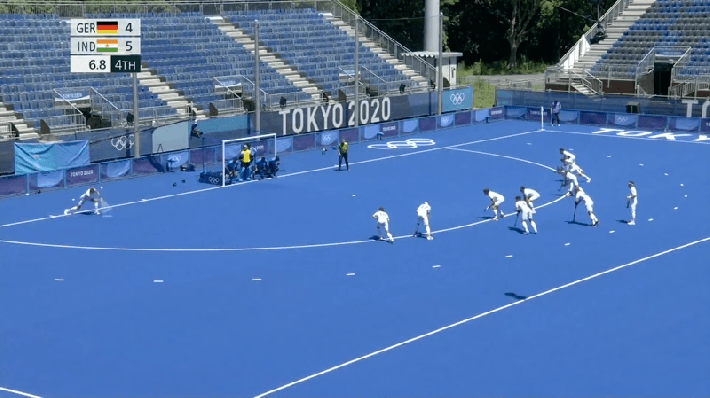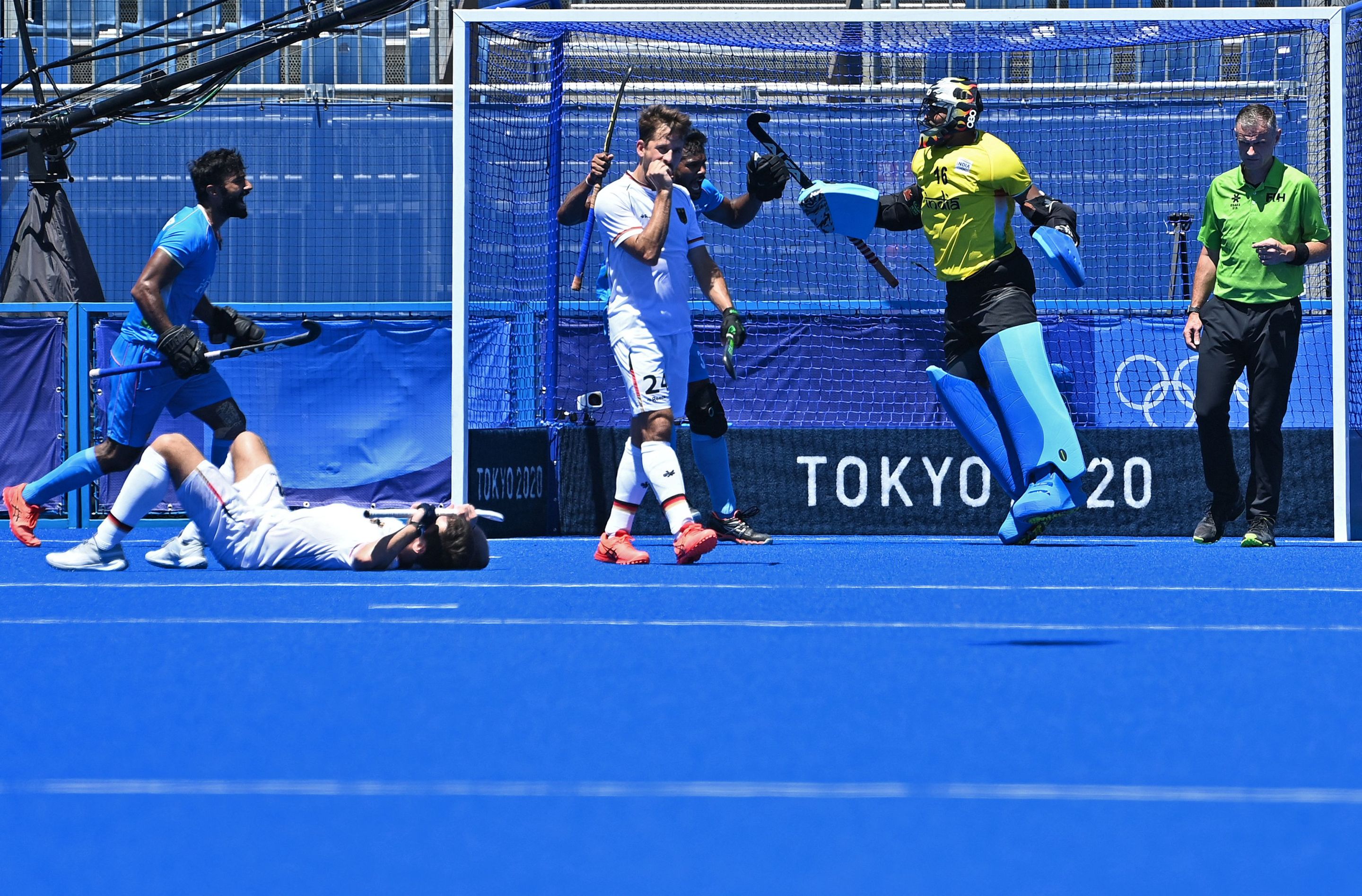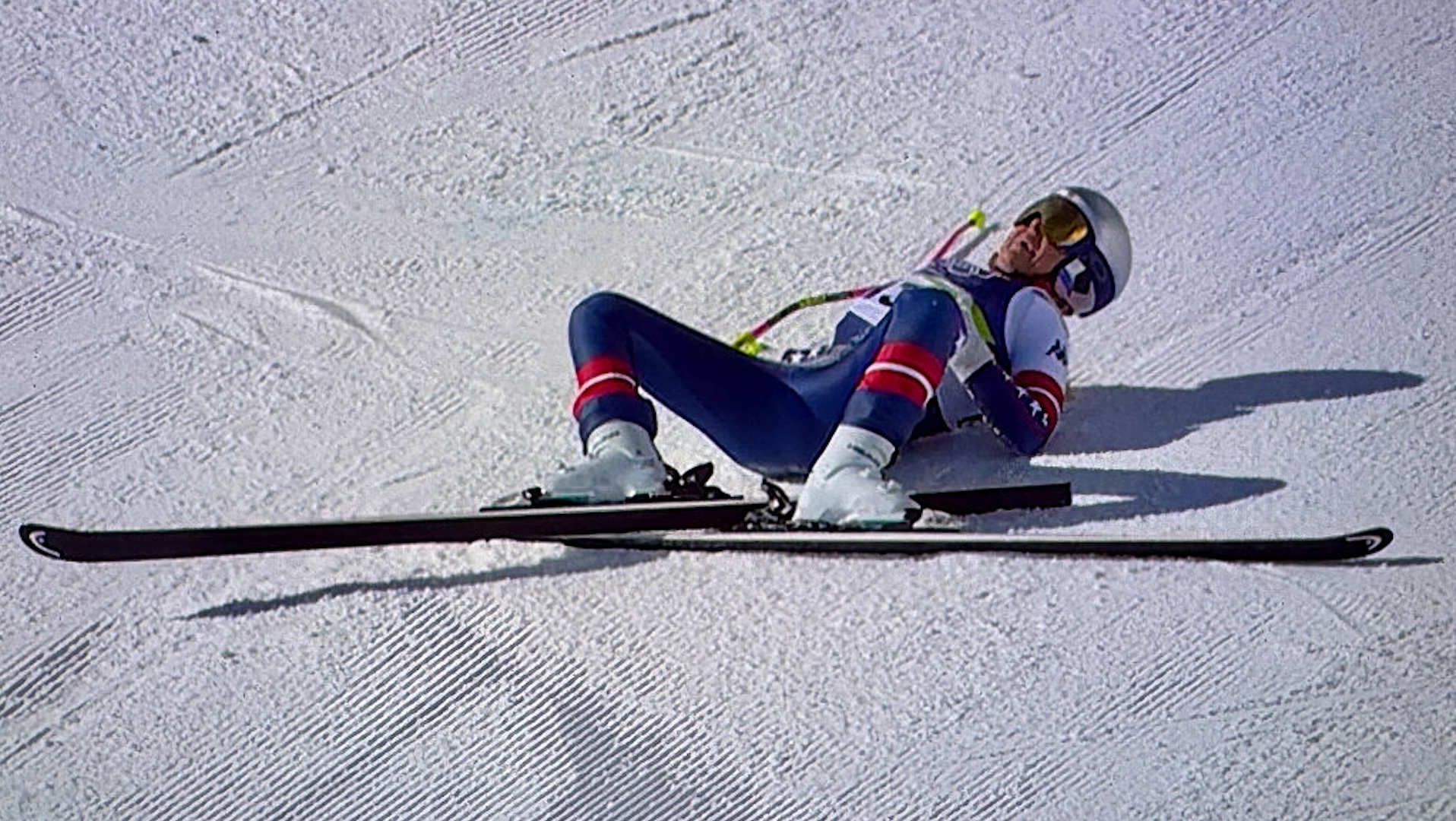With a population over 1.3 billion and negligible national interest in or infrastructure for sports that aren't cricket, India has always snoozed through the Olympics, to a mathematically baffling extent: 33 medals all-time, all from the Summer Games. Here's my challenge to the second-most populous nation on Earth: Go out and win enough medals that they cannot be comprehensively profiled in an efficient little blog post. It should be much harder to summarize the athletic feats of cumulative billions of people.
I also suspected that I was missing out on the chief perk of second-gen immigrant Olympics-watching: a bonus rooting interest, dislocated yet tenderly felt. Huge bummer. I would hang onto the scraps of information about those scarce medals, often won by shooting stuff or fighting people, with the occasional cameo from a racket. But there were also faint whispers—either from my dad or Wikipedia, hard to recall—of an ancient, dormant Olympic force from the subcontinent: field hockey.
I saw no evidence of this in my conscious life, however. India had not won an Olympic medal in field hockey since 1980. Crumbling yellow tomes report that the men's team was the most dominant team in the games' history. It won six straight gold medals from 1928 to 1956, including a sweet one-year-post-Independence victory over Great Britain in '48. Then silver in '60; gold again in '64; bronze in '68 and '72; an unprecedentedly bad seventh-place finish in '76; and a final gold in '80. That streak then went cold, which might be attributed in part to a shift in international play away from grass fields and onto astroturf, expensive to construct and rare in India. After their last gold, the team rattled off a string of fifth- to eighth-place finishes before failing to even qualify for Beijing in 2008. They finished 12th and eighth in London and Rio. Stories of old glory and double-digit margins of victory felt obsolete and irrelevant, until this week, when I saw, with my own eyes, both the men's and women's squads battle in their respective bronze-medal matches against Belgium and Great Britain. The men won 5-4, snapping a 41-year medal drought.
Members of this staff complained about the visuals of stooping and the strange shape of the sticks. Sorry that these ignoramuses cannot appreciate what many are calling the most righteous and aesthetically pleasing sport of the Summer Olympics. There is a lot to appreciate here, including but not limited to the remarkable back strength and mobility of these athletes who tear downfield in a posture you could only temporarily assume to inspect a coin on the sidewalk. I am in awe of the self-destructive audacity of unpadded defenders surging out of the goal to block the shots off penalty corners, and how low the players ducked to the turf as they wind up to smack the ball into goal, heads hovering just inches above the artificial turf. I love to know what a drag-flick is. I appreciate the showboating and flashy reflexes of men's goalkeeper P.R. Sreejesh, who would later thank his trusty defenders for keeping the balls away from his "D"; and the woman's captainship of Rani Rampal, who has spoken about field hockey as an "escape from my life," a pursuit that cut through poverty, malnourishment, and parents' expectations of what a woman should do.
The Indian women blew their first three matches in the pool stage, only to end 2-3 and sneak into the knockout stage, where their first opponent was an Australian side that had gone 5-0 and conceded just one goal. Then came the team's signature match of the tournament: a 1-0 upset on the strength of their defense, advancing them to the semifinal, which they lost 2-1 to Argentina. In the nerve-shredding fight for their first-ever medal, drag-flicker Gurjit Kaur continued a strong tournament with two goals off penalty corners, but India conceded a decisive goal early in the final frame and couldn't strike back, falling 4-3 to Rio gold medalists Great Britain. This fourth-place finish tied with their first-ever Olympic appearance in 1980; the only time they'd qualified in the interim was a 12th-place finish in Rio. The players, many of whom spent their early careers blocking out criticism of the skirts they wore in competition, or a woman's participation in sport altogether, hope their performance has opened the minds and piqued the interest of girls at home.
The men entered knockout rounds as serious contenders, lost to Belgium in the semifinal and faced Germany for the bronze. Down 3-1 early, the Indians scored two goals in two minutes to close out the first half, then scored another pair of goals within three minutes early in the second half. They rode this 5-3 margin to victory, though not without great anxiety, as they failed to capitalize on a slew of penalty corners, didn't score on a breakaway one-on-one situation, and faced heavy pressure on their side of the field after the opposition pulled its goalkeeper to go all-in on offense in the waning minutes of regulation. All that pressure yielded one German goal. A dysfunctional game clock then afforded Germany precious extra time on the ball in the last minute—prime opportunity to scream at the TV—and they earned a penalty corner with six seconds left that gave them a final chance to equalize. But Sreejesh shut that down with his ninth save of the day to secure the bronze.

India was the only nation to finish in the top four in both brackets. That's really good. But they should be more like their older cousin, who won six straight gold medals and once beat the U.S. team, 24-1. Get to work!






